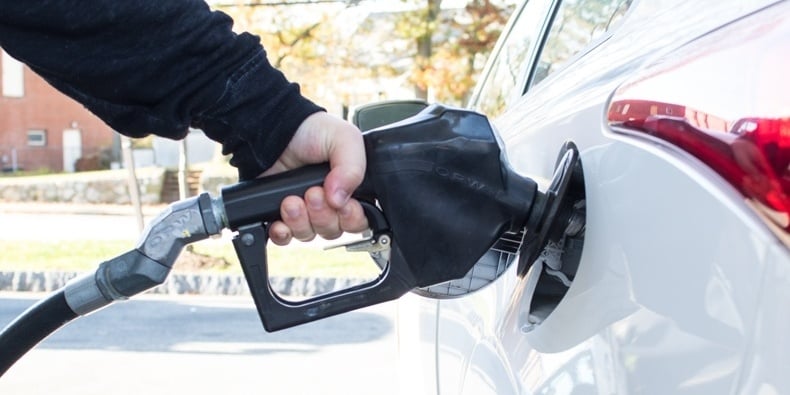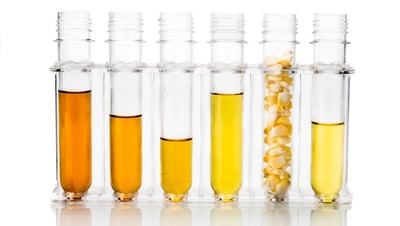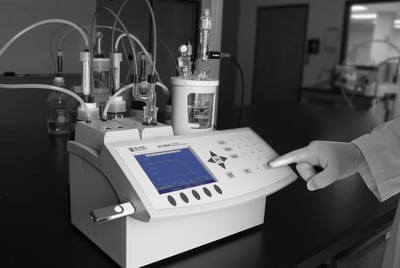
Biodiesel is a fuel that is composed of the esters of naturally-derived fatty acids. It can be used as a standalone fuel in combustion engines, or blended in with conventional petroleum diesel.
The benefit of using biodiesel over petroleum in combustion systems is that biodiesel produces fewer emissions. Since biodiesel is produced from renewable resources, it also offers more sustainability over petroleum diesel.
How biodiesel is made.
Biofuels are produced by reacting the fat in vegetable oil or animal fat with alcohol to produce esters and glycerin; this process is called transesterification. The resulting esters produced must meet the specifications noted in ASTM D6751 in order to be considered biodiesel. (The glycerin is reused in various industries like cosmetics, food production, and pharmaceuticals.) This standard is developed by ASTM International, an organization which ensures the standardization of many industrial products.

Why we test water in biodiesel.
Among the specifications for ASTM D6751, water content is a vital component of biodiesel testing for efficient operation. Water in biodiesel must be strictly monitored in order to stay below the 500 mg/L (ppm) limit. Fuel that has a water content above this value has a higher risk of damaging the fuel system components of an engine due to corrosion. Too much water in biodiesel can also promote microbial growth, which contributes to biofilm development in fuel line components.
How Hanna can help with testing water in biodiesel.
A biodiesel producer contacted Hanna Instruments for a method to measure the moisture content of their soybean-derived biodiesel. They were currently using Karl Fischer titrations looking for a replacement unit to measure the water content. We recommended the HI904 Karl Fischer Coulometric Titrator.

The coulometric Karl Fischer titrator was selected over volumetric titration for it's ability to more accurately measure samples that have very low water content. The producer's expected water content was 0.3%, which is well within the optimal range of 1 ppm to 5% water. The cosolvent they use in their titration is 1-pentanol, since biodiesel exhibits poor solubility in methanol.
By using this setup, the producer was able to inject biodiesel directly into the titration cell without having to perform an external dissolution; they appreciated this feature since it accelerated their turnaround time for analysis. A generator electrode without a diaphragm was used in order to avoid clogging, reduce drift rates, and reduce the number of consumables needed.
That's why we've dedicated our blog as a helpful resource for you to use! Catch up on the latest products, explore industry trends, discover testing tips, learn how to improve results, and more. Got questions? Email sales@hannainst.com.
